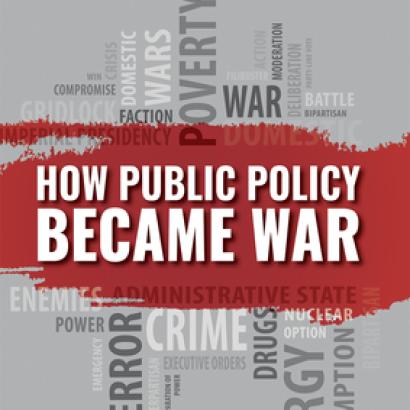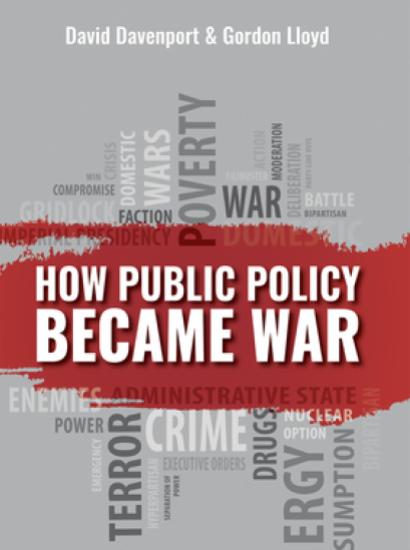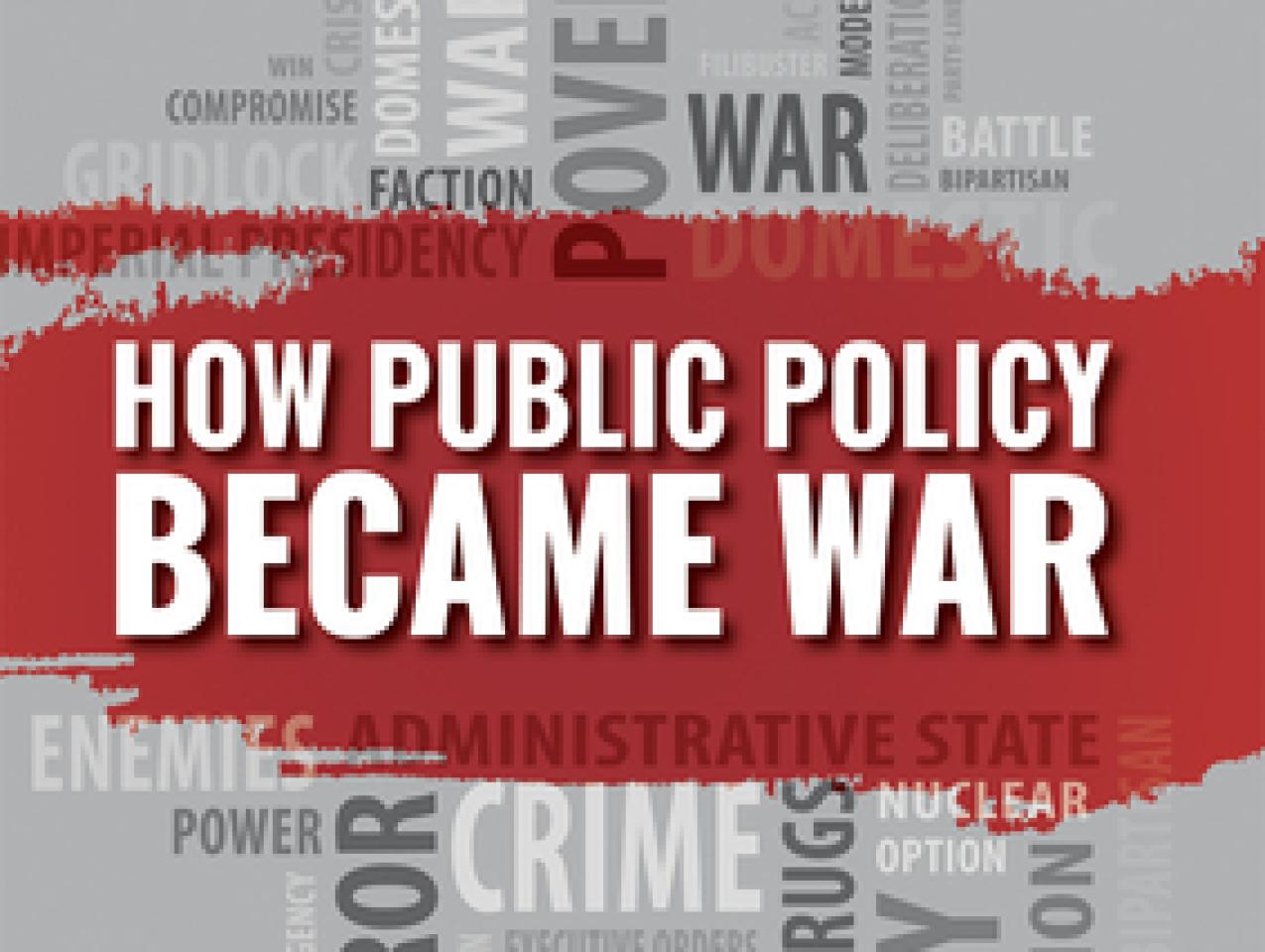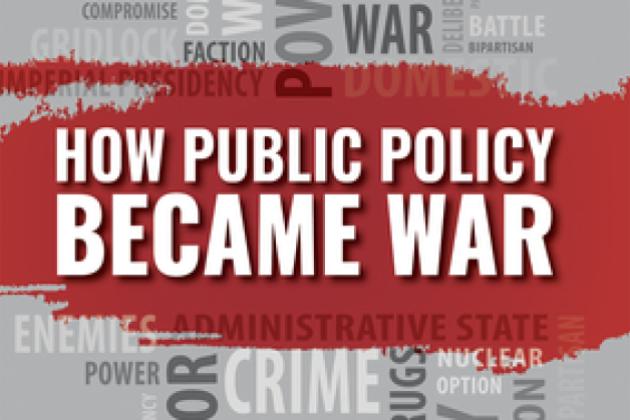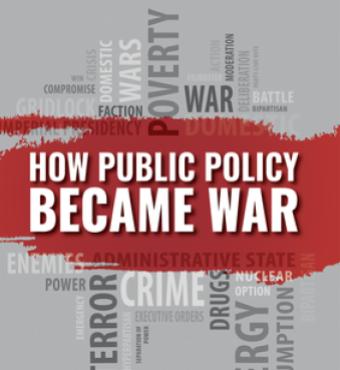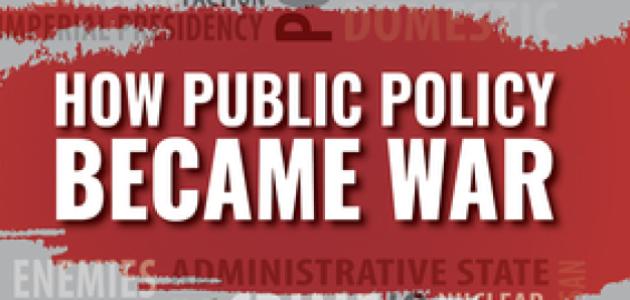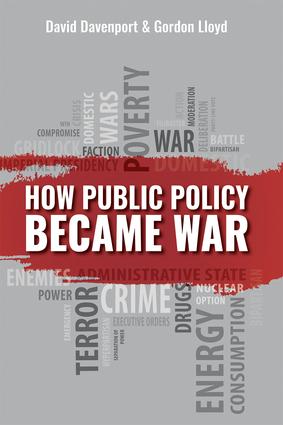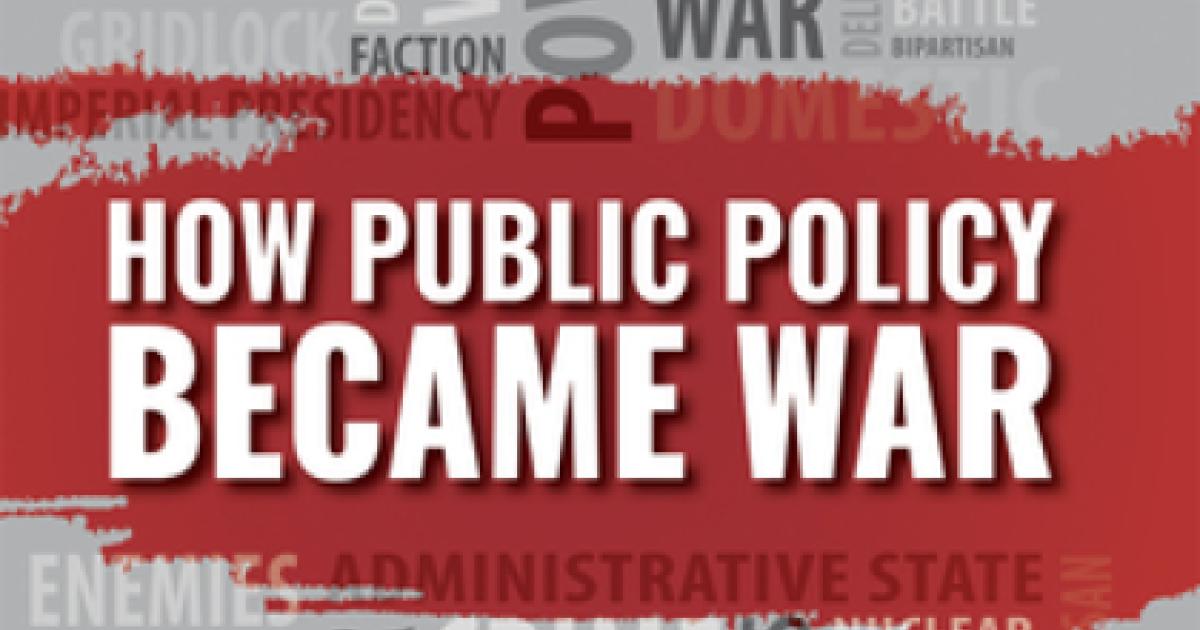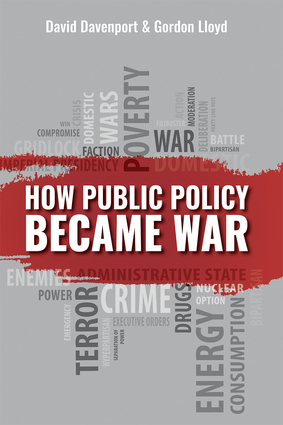
America’s political leaders no longer deliberate and compromise over the best policy solutions, but instead seek total victory in political battles and wars, all at a great cost to the nation, says Hoover scholar David Davenport.
In a new book, How Public Policy Became War, Davenport and co-author Gordon Lloyd advocate a re-examination of politically destructive approaches to American governance, suggesting a return to the much more deliberative vision of the Founding Fathers. Hoover Press published the book on May 7.
Davenport is a Hoover research fellow specializing in international law and treaties, constitutional federalism, and American politics and law, and the former president of Pepperdine University (1985–2000). Lloyd is a professor of public policy at the School of Public Policy at Pepperdine University.
The Hoover Institution recently interviewed Davenport about the book:
What are the main findings or themes in your book?
Davenport: The Founders thought that the primary approach to policy-making would be deliberation, searching for what they called “the cool, deliberate sense of the community” over time, seeking the consent of the governed. This is a far cry from how policy is made today. Presidents now make policy unilaterally, not deliberatively, using executive orders, domestic policy wars, national emergencies and the like. The US Senate, once called the greatest deliberative body in the world, hardly deliberates. The war metaphor has captured policy-making in Washington and we are all worse off because of it.
What do you mean by “how public policy became war?”
Davenport: In the book, we trace a series of steps that led to the present state of war in public policy. First, Franklin Roosevelt used the crisis of the Great Depression to shift power to the federal government, and specifically, to the president and the administrative state. Unfortunately, these emergency powers never went away and the powerful modern presidency was born and lives on. Subsequent presidents figured out that they could exert further control over policy by declaring war on domestic problems—wars on poverty, crime, drugs, energy consumption and terror. We also live under 30 states of national emergency declared by presidents. Political leaders no longer deliberate over the best policy solutions, but instead seek merely to “win” a series of political battles and wars.
What did the Founders emphasize in their design of the US government?
Davenport: The founders thought the people were really in charge and that government should be based on the consent of the governed. Instead of a direct democracy, they created a federal republic with all kinds of filters: representation, checks and balances, separations of powers and the like to facilitate deliberation. The Founders would hardly recognize how Washington works today.
What lessons can we learn from the last half century of New Deal-driven government?
Davenport: The New Deal was effectively America’s French Revolution. It changed everything about how government works. Issues that were once debated through congressional committees and amendment processes are now driven by the president. A completely new administrative state of federal agencies was created to govern. The government became about what Franklin Roosevelt called “action, and action now,” rather than deliberation and consent.
Should government reflect the priorities of each generation?
Davenport: Yes, Thomas Jefferson acknowledged that the earth belongs to the living. James Madison warned against “a blind veneration for antiquity.” The point is not to go back to the founding and do everything the way they did, but to use the processes they set in motion—voting, checks and balances, separations of power, filters, constitutional amendments—to keep the government in touch with “we the people” in each generation.
What is the importance of “deliberation” and has it been lost in today’s government?
Davenport: The Founders both modeled and taught a government of, by and for deliberation. They deliberated both indoors—in Philadelphia and in ratifying conventions in all the states—and out of doors, through the Federalist Papers and other essays and speeches. They debated and compromised their way to an extraordinary form of government. The opening line of Federalist Number One calls on the people to “deliberate on a new constitution.” The habits of deliberation—moderation, compromise, care, caution, seeking consent—are all weakened today. And the structures and filters that helped support them are all in need of repair and strengthening.
Explain how Plato’s “divided line” in The Republic applies to today’s American Republic.
Davenport: Plato’s “divided line” separated the philosophers who lived in the world of ideals from the rest of us who live among lesser things. Like all analogies, this one is imperfectly applied to political life today, but we use it to focus on the filters at the line between the people and their leaders that should be facilitating deliberation, not war. Specifically, we believe the role of the press, of political parties, of civic associations and of federalism could help at the line between the people and their political leaders. We also propose improvements above the line, primarily strengthening Congress and making it more deliberative, and with the people below the line, especially in the need for greater civic education and engagement.
Any other issues you’d like to address?
Davenport: Metaphors do matter and the war metaphor in politics has done great harm. We need to better manage the war metaphor and work toward better ways of understanding and carrying out a deliberative democracy.
Davenport has coauthored two other Hoover Press books with Gordon Lloyd: Rugged Individualism: Dead or Alive? (2017), and The New Deal and Modern American Conservatism: A Defining Rivalry (2013).
MEDIA CONTACTS:
Clifton B. Parker, Hoover Institution: (650) 498-5204, cbparker@stanford.edu







